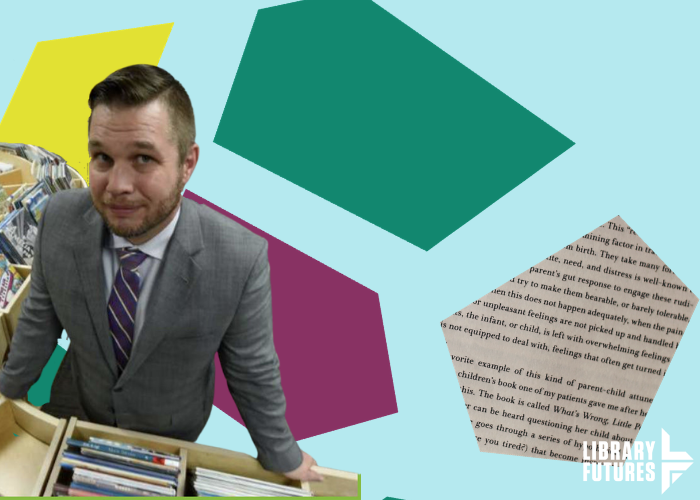Four Questions about Fine Free Libraries with Scott Jarzombek of the Albany Public Library

Across the country, public libraries have eliminated fines in order to better support their communities. Called "form of social inequity" by the American Library Association, library fines disproportionately impact lower income users and youth. As a barrier to access, fines are a needlessly punitive measure that greatly decrease equitable access to public resources. Mounting evidence suggests that going fine free can increase library usage and circulation, contribute to positive perceptions of library services, and free up staff to focus on programming and relationship building.
For our inaugural ‚"Four Questions with" series, we interviewed Scott Jarzombek, Executive Director of the Albany Public Library, which went fine free in early 2019.
Albany Public Library is a Coalition Partner of Library Futures. If you're interested in joining our Coalition, please reach out!
Read more about fine free libraries on NPR, Reasons to be Cheerful, and the Atlantic. For a more in depth look at the benefits of fine free libraries, check out this report from the Syracuse University iSchool Public Libraries Initiative.
1. What prompted the Albany Public Library to go fine-free?
The process started right before I came back as the ED. Our Assistant Director Melanie Mezger piloted an initiative called MyCard. This was a user account for children that did not require parents' signature for a library card and did not charge fines. Children are allowed to borrow up to three items at a time with no due date, thus, no late fees. When an item is returned to the library, they can borrow another one. The program was highly successful.
I was very on the fence about fine-free. For many of the same reasons that people are today. However, MyCard was such a success that it fostered a lot of internal conversation. Albany is a somewhat progressive city, but it is still very old school. A place where traditions die hard. So we knew we had to approach this carefully and with a lot of intention. The leadership of the library had already been talking about removing barriers to patrons, specifically financial ones. through a lot of conversations and research, we realized how much of a barrier library fines could be.
2. What benefits to your community have you seen in the last two years?
I would say going fine-free has improved our relationship with the people we serve. We have seen a significant drop in patron complaints about customer service and incident reports related to circulation. We saw patrons come back to the library for the first time in years, and also experienced simple gratitude from the public. The new policy relieved some stress between the staff and patrons. An unintended consequence of going fine-free in January 2019 was that we did not have to worry about what to do about fines during the pandemic. This is a topic I know more than a few libraries grappled with.
3. How does your library serve its community and fulfill its goals? Has going fine-free helped commit the library to equity? How so?
It is always telling when someone says, "It is just a dollar." Library fines add up. For some of us, five dollars is nothing. For others, it is a meal or enough gas to get to work. I also absolutely disagree that fines teach responsibility or that it is even the role of the library to "teach responsibility." If it is, we are doing a poor job. Just look at the personnel debt crisis we are in.
The truth is library fines disproportionally punish those who need us the most. The waving of fines is fraught with bias, and if you run the reports, you may learn that your library is "fine-free" for some, but certainly not all. Fines made borrowing books for many an unwelcoming and shameful experience. If you have ever worked a circulation desk, you know how it feels to watch a mother tell her child they can't borrow a book. That experience is heartbreaking.
4. What would you tell other libraries that are considering going fine free? How could they approach the topic with their boards, users, and local government?
I think there are enough success stories out there to help facilitate the conversation. Remember that for many, this is not about anything but tradition. That makes it hard to have an earnest discussion when convention is put into question. There will be a little bit of emotion. You are challenging what some people believe is a fundamental part of library operations.
We were lucky. Going fine-free tied directly into our strategic plan and our conversations about equity. If you experience a significant amount of pushback, start small. Do a pilot program or start with children. You won't just need to convince your board or municipality. You also have to get buy-in from your staff and patrons. That is where we faced some of the most significant pushback. Sometimes you just have to bring everyone along with you, which means going slower than you like.
